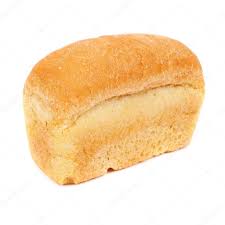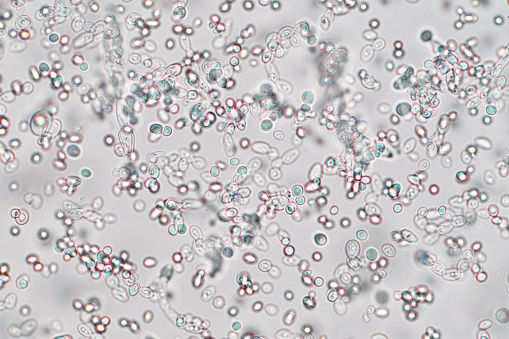Yeast — A Gift from God
- Home
- Yeast — A Gift from God

I’m learning more all the time about fungi from my brother David. Though I think he is mistaken, he claims that yeast is a form of fungus. So, I’m going to write about it. One thing I know, yeast is everywhere. It’s a natural part of our world, and it surrounds us and interacts with us all the time. (You’ll soon discover that David and I question each other frequently!)
Yeast, like anything else, can be helpful or hurtful. It’s a great gift from God. Without it, we wouldn’t know the joy of a warm loaf of bread slathered with butter and eaten with joyful abandon. We wouldn’t know the benefits of alcohol. But here’s the crux of the matter: yeast also holds dangers for us. For example, I’m diabetic, and that very bread that is so wonderful also raises my blood sugar dangerously. And some people are prone to alcohol addiction, which is also a deadly disease.
Yeast is a reminder to us that our Creator didn’t give us training wheels when setting us on the bicycle of life here on earth. When our earliest ancestors learned to eat the wild grapes that they found, some of those grapes had been invaded by the wild yeast that grows naturally on grapes, and the powerful action of those microorganisms turned the little purple sacs of juice into tiny wine glasses. If they ate enough, they started to feel an exhilarating warmth spread through them. Then their perceptions began to blur and they felt a new looseness and happiness. They learned that they could increase this by picking the grapes, mashing them together, and letting the yeast do its work on the juice. Wine was born.
The Jewish people have always seen this as a great gift from God: “Blessed art thou, O Lord our God, who gives us the fruit of the vine.” But in the same way that they understood alcohol to be a gift, they also understood that too much of a good thing is bad, and can be deadly. The Bible constantly tells us not to become drunk, even as it celebrates the joys of wine. Jesus’ first miracle in the Gospel of John was to save a young bride and groom from embarrassment at their wedding feast by creating wine from water when their supply ran out. And at the other end of his ministry, Jesus used wine as a vehicle for the miracle of his saving work through his sacrifice, asking us to see the wine of communion as his blood.
The Jewish people understand the great power of yeast, both to create and to corrupt. So, it doesn’t come as too much of a surprise that the dietary rules by which observant Jews have lived include the rules surrounding the preparations for Passover in which all yeast is to be zealously removed from the home. Yeast is a corrupting influence. Yes, managed correctly, that “corruption” gives us wine and bread, but it also points to a larger problem we have as humans: things that start out as blessings can, left to themselves, become destructive.
So, the kitchen cupboards and floors are swept carefully, all yeast is removed, and the house is cleansed of the corruption. A new beginning! Then, after Passover, yeast is let back in, to create the wine and the bread. But it is invited back with the understanding that God is in control, and the yeast serves at God’s pleasure. (I’m not Jewish, and I don’t suggest that I’m speaking for the Jewish understanding of all this.)
Yeast, then, serves as a metaphor for all those things that surround us and can either be wonderful or horrible. (I think of fungi in this way. Though I am fascinated by my brother’s explorations of all the fungi around us, and find beauty in them, I am horrified by the idea that one mistake in picking a mushroom can lead to death.)
I thank God that the year 2020 is past. So much of what happened has been like yeast, invading our comfortable existences and making gigantic changes. Some of those changes will, I believe, ultimately bring great good. I hope that the Black Lives Matter movement will bring about a true change in the racial toxicity both of our country and the world. It’s going to take time, and not everyone will love the changes. But just as yeast begins its work in small ways, but can “leaven the whole loaf”, so each time that an empowered white person really searches his or her heart and turns away from racism, we come closer to the day when “all men and women are created equal.”
What “leavening” have you experienced? Has Covid-19 given you time to explore new areas of your life? Have you re-thought your understanding of politics? Or have you experienced the destruction brought by grief? Perhaps in these first weeks of 2021, it’s time for us to “sweep away the old leaven” and start fresh, asking God to introduce into our lives the new, fresh yeast that will gladden our hearts with its creative ferment.
Please check the recipe page for a good recipe for honest white bread made with yeast!
Shalom, Chuck
And in true form here is a comment from Dave:

I’d like to add a note or comment to your blog: Yeast, any of about 1,500 species of single-celled fungi, most of which are in the phylum Ascomycota, only a few being Basidiomycota. … Yeasts are found worldwide in soils and on plant surfaces and are especially abundant in sugary mediums such as flower nectar and fruits.
Recipe: White Bread
Thank you for this blessing! peace!